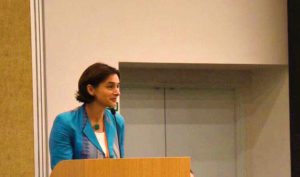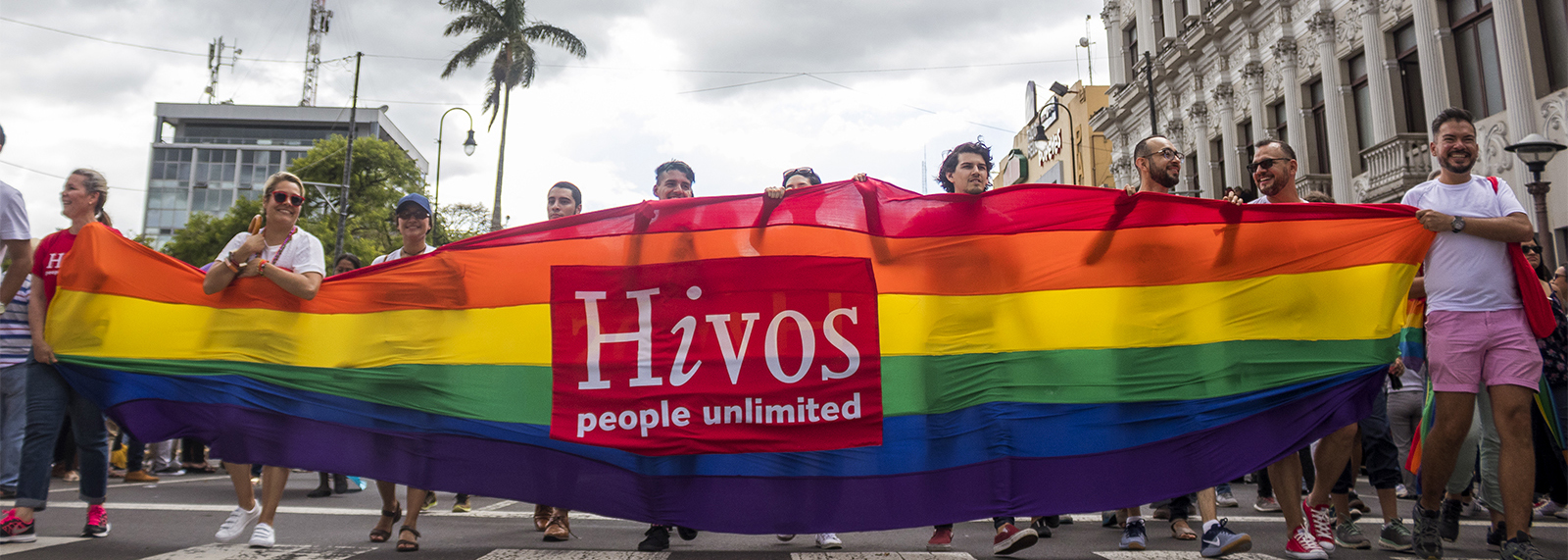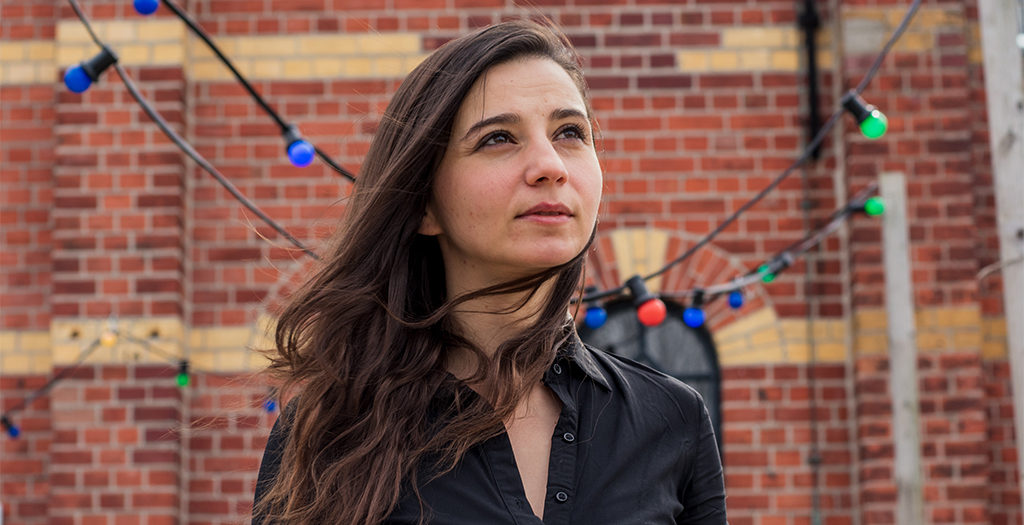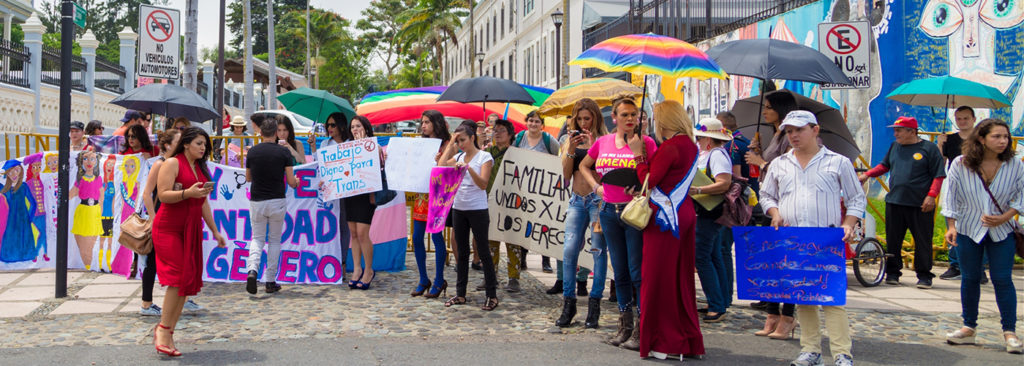“This is the suit I wore when I married my wife back in 2004, in the Netherlands. It‘s not normal that here I have to write a note asking for permission for my wife to pick up our kids from school when I’m away,” revealed Myrtille Danse, director of Hivos Latin America and the Caribbean, when she opened the meeting.

As I looked around the audience, everyone’s face was full of emotion. Myrtille continued, “It’s not normal that I have to fill out forms that require the name of a mom and a dad. It’s not normal that I have need my work visa to live in this country if I have a Costa Rican wife. For all these reasons, the discussions we are about to have are very close to my heart.”
At this point the audience erupted in applause, many of them in tears. “This is what this is all about,” the person sitting next to me whispered.
Although the attendees weren’t here to talk about themselves, personal stories kept popping up throughout the June 29 meeting about the future of sexual rights and diversity in Latin America. The hundred or so participants from all over the world were actually at the Convention Center in Heredia, Costa Rica, to hold a high-level dialogue about how Costa Rica’s consultation with the Inter-American Court of Human Rights had changed the course of human rights in the country and the region.
High level event in Costa Rica with Right Here Right Now: how we can make sure that the Consultative Opinion of the Interamerican Court is being implemented. And how to make use of it at the international level even beyond Latin America? @rhrn_youthsrhr @HivosAmLatina @hivos pic.twitter.com/ji1GSFR8wO
— Karen Hammink (@KarenHammink) June 29, 2018
In response to Costa Rica’s consultation, the landmark advisory opinion of the Inter-American Court of Human Rights from January this year stated that same-sex marriage and self-recognized gender identity should be recognized as human rights throughout Latin America. Costa Rica’s consultation was handled by Ana Helena Chacón, former vice-president of the country.
“Human diversity is enormous, full of color and nuance,” said @anita_chae, adding forcefully “Let there be no more stories of 2 mothers or 2 fathers who have to justify whom they love.” Standing ovation at Costa Rica high level meeting on #SOGIE w/@HivosAmLatina & @NLinCostaRica. https://t.co/9aiBTUbLJd
— Hivos Global (@hivos) June 30, 2018
“A bridge between the reality of pain and politics”
Víctor Madrigal, the UN Independent Expert on protection against violence and discrimination based on sexual orientation and gender identity, participated as a special guest along with Ana Helena Chacón, and many others from the UN, the Costa Rican government and the Dutch Embassy in Central America.
But it was the voices of young participants from the Right Here Right Now global platform – activists from Zimbabwe, Senegal, Uganda, Bolivia, Honduras and Indonesia – that gave the conversations in a truly human context. Hivos is part of this platform led by Rutgers that advocates for sexual and reproductive rights for young people.
In his closing remarks, Victor Madrigal recognized youth and adolescents as key to his work, making sure the often double discrimination they face gets removed.
All the Court’s colors
So how can we use the Inter-American Court’s finding, officially called Advisory Opinion 24, to generate changes at an international level? How can we implement this Opinion at a national level in Latin American countries? How do we keep public opinion on our side? What does the Advisory Opinion mean for individuals, especially young people? These were some of the questions discussed during working sessions I listened in on.
Víctor Madrigal described the Advisory Opinion 24 as a public good and an instrument. Summarizing what he had gleaned from the working sessions, he said we’d need to create non-threatening campaigns and messages promoting the Opinion and make sure judges, activists and lawyers are well-acquainted with it.
Will Janssen, Global Director for Hivos’ Open Society, closed the day by reminding us that this process is vital to the lives of thousands of people, “My dear colleague Myrtille showed us what this is all about: being able to love who you want to love,” and added, “Culture shouldn’t be above human rights. This applies not only to the rights of LGBTI people, but also the right to safe abortion and sexual reproductive health and education.”
#LatinAmerica compliance with @CorteIDH‘s recognition of #samesex marriage & #genderidentity choice as #humanrights seems closer than ever after high-level #SOGIE meeting @HivosAmLatina. Diversity calls us and we’ve answered the call! @NLinCostaRica #LibreDeSer #Pride2018 https://t.co/2vqUrhi0Iz
— Hivos Global (@hivos) June 30, 2018



